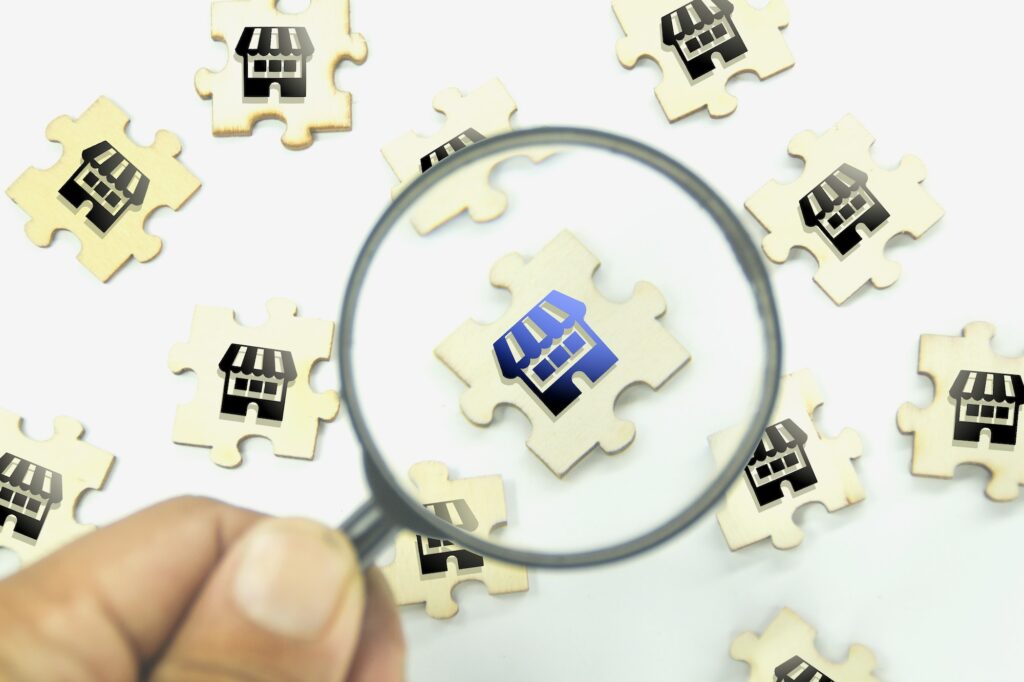Introduction
Setting up a business is incredibly exciting but can be overwhelming at the same time. Fortunately, with the rapid rise in digital transformation, there has never been a better time to start a business than now. There is no longer a need for a physical store, and you can easily and successfully run your business from the comfort of your home.
There is something very satisfying about bringing your vision to life, and it can be very tempting to rush in before you are ready. But, as they say, “Fail to prepare, prepare to fail.” Preparation and research will be critical to your success.
It can be difficult to know where to start – should you start with your brand identity or get a business plan in place? Do you need to look at funding options? What type of website do you need? The initial questions seem endless but don’t be put off. The first thing to remember is that you will make mistakes, and a lot of your learning will be done along the way. However, there are a few steps you can take to lay the foundation and get your business off to a great start.
Understanding your current situation
Understanding your current situation is important as it will help narrow your focus and determine how you best proceed. Have a look at the following questions to get a better sense of where you are:
- Why do you want to start your own business?
- What are your current skills and knowledge?
- Will you be providing a service or product?
- What are you passionate about?
- Will your business be full-time, or are you starting a side-hustle?
- Do you need start-up capital?
- How much time can you currently commit to your business?
Interrogating your business idea
Interrogating your business idea is another key element, and here is where the research starts. It is key to understand what your product or service is solving for, as that will determine how you position yourself.
The next step is to get to know your competitors and identify what you can do better and how you can differentiate yourself. Finally, your customers are key, and you need in-depth knowledge of your target market. Understanding who your potential customers are is vital – you need to understand how they think, why they will buy your product, their preferences and behaviour.
The above process will help you identify opportunities, define your value proposition and give you a detailed view of your target audience and competition. If you don’t understand your customers, you won’t be in a position to identify whether or not your business proposition is viable, and you certainly won’t be able to develop any form of marketing strategy.
In order to be successful, you need to engage in continuous research about your industry and market segment, the latest trends, and how you will position your business. The bottom line is that you must know your business’s purpose and who you are selling to.
Laying the foundation with a business plan
A formal business plan will definitely be required if you need any form of start-up capital but even if you don’t, it’s a great way to formalise your business approach.
Business plans should also contain what needs to get done and what your goals are. Without a predefined set of goals, how will you know if your business is successful or not? It may be easier to think of a business plan as a tool to help manage how your business grows and meets your objectives. It will help define your strategy, deadlines, milestones, budgets and also establish what it will take for your business to be profitable.
Your business plan should provide a high-level picture of your business, what problem you are solving, your solution to the problem, your target audience, and the strategy you will be using to achieve your goals.
It helps you with the financial aspect of your business in terms of expenses and what it will take for your business to be profitable.
The legal side of business
Getting professional advice on your business’s legal and tax aspects is always advisable, as you definitely don’t want any nasty surprises down the road. Although having a professional register your business may require some upfront costs, it will help in the long run.
You will need to understand the ins and outs of registering your business and how your business is taxed. There is always a lot of paperwork that needs to be initially completed, but it is equally important to know what type of documentation you need to retain on a monthly basis, especially from a tax perspective.
You may also need to investigate whether or not you need some form of personal liability insurance, and finally, there is the banking aspect. Look out for banks that target entrepreneurs and understand your changing needs and especially make sure you take note of all the associated costs.
If this is part of your knowledge base, then you are very lucky; for the rest, we would like to reiterate that engaging with a professional is by far your best bet!
Bringing your business to life
This is where the fun stuff starts. Your brand identity is where you will see your business come to life, and each aspect is equally important. As we have mentioned in previous articles, your brand identity is your business’s personality – it encompasses who you are and is reflected in every aspect of your business.
Your brand is made up of essential elements as follows:
- Logos, we all know how important a logo is; it is instantly recognisable and probably one of the most important aspects of a brand. Just think of the swoosh for the Nike logo – no one has to type Nike below it to identify the company!
- Tone and voice is all about how your brand sounds and, once again, should be consistent across all your platforms, including all forms of communication. If you are marketing academic books, then having a fun and slightly silly or humorous tone wouldn’t be communicating your brand effectively.
- Colours, a great colour scheme can make all the difference and should be aligned with your brand. For example, if your brand is all about kid’s toys and fun, then a colour palette of blacks and greys is definitely not the ideal choice.
- Fonts are similar to colours, and selecting the right font to represent your brand is key; a playful brand will need a playful font!
- Images should take all the above elements into account.
A consistent brand is crucial to creating a cohesive, professional look and, most importantly, an easily identifiable brand!
Website – the window of your business
Connecting with your target audience is crucial for any small business, and one of the easiest ways to do that is through a website. A website is the heart of your online presence; it allows you to create and control how your business is represented to your potential customers.
Having your own website allows people to gain insights into your business, making it far more relatable. Your website is your number one marketing tool – you can showcase who you are, your beliefs, vision, and values, as well as your products and solutions, all in one place! And besides, your website is out there marketing your business 24 hours a day, 365 days a year.
And while we are talking about websites, you may find some of our previous articles especially useful! Here are a few, to get you started.
Does my small business need a website – 6 key reasons you can’t ignore
Is it important to keep up to date with new website design trends?
Marketing Strategy
Marketing is key to getting your brand out there. Unless you make a concerted effort, no one will know that your business exists. There are endless strategies you can implement to increase your brand exposure and get the attention you deserve.
As we discussed in our article on different ways to market your business for all budgets, no matter the size of your business, marketing plays a crucial role in gaining brand recognition as well as those all-important customers. Your marketing strategy should never be accidental; it requires research and planning to come up with the best solution for your business.
The biggest advantage of online marketing is that it has levelled the playing fields. Smaller businesses can compete on the same platforms as larger businesses, as you no longer need a massive budget to advertise on billboards and run advertisements on TV.
Online marketing, when done strategically, can make all the difference, especially for smaller businesses. For example, according to research, two out of every three small businesses use online marketing to grow their customer base.
Conclusion
Preparation is key, and we can never reiterate the importance of research enough. Take the time to research and build a solid foundation. When starting your own business, ensure that you are flexible and that your strategy is not fixed; you need to be adaptable. You definitely need a starting point but don’t be scared to make changes.
We tend to think of failure as something negative, but failing means you tried something new, and unless you do, you will never know if you will be successful. The trick is recognising what is not working/failing and taking action immediately. It’s going to be a challenging but immensely exciting and rewarding journey.
Building a successful company doesn’t happen overnight, in a week or a month. It takes time, but with hard work, dedication, and a lot of patience, we know you will be successful!!







